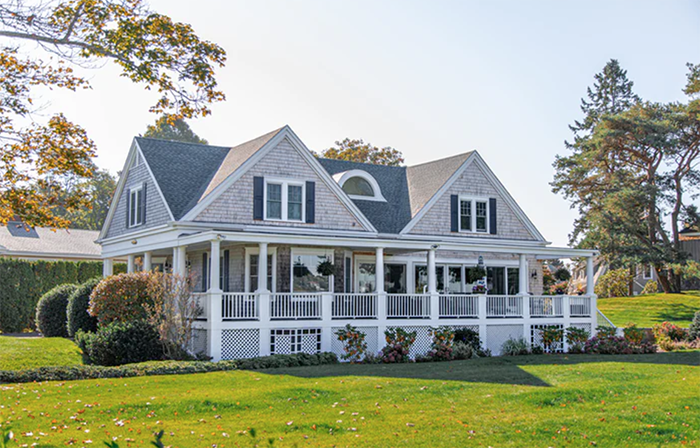Buying a property during the coronavirus pandemic raises many eyebrows. Some might say it’s a perfect time since prices are low and others while others might say to wait because prices will continue to drop. Several analysts expected a possible recession in 2021. But now that the coronavirus is dampening consumer spending, closing businesses, stopping wages, and sending workers home, some economists say the economy is actually in inflation already.
Real Estate Price Data is Key
COVID-19 has caused families to come together but it tore apart many businesses. We typically define a pandemic by observing data that is not completely collected, because, by nature, it’s a glance back. Based on the economic effects of the covid-19 virus that are on the rise every day, many economists believe that the view in this rear-view mirror will not be pretty if we go further down the road and take a look.
For others, the long-lasting effect of the Great Recession of 2007-2009 has left memories of losing a house or seeing one’s friends or parents destroy theirs. It rising is enough to make you second-guess home investments in volatile times. Yet now that the symptoms of coronavirus influence the economy further with each passing day, there is no denying that it heightens this concern for others.
History of the Pandemics and Recession
Pandemics go far as humans go back in history. During the years before the Great Recession, subprime mortgages allowed homeownership available to nearly all, even those who could not afford it. As a result, there was an increase in homeownership by investors who had placed little to no capital down. As real estate values fell sharply, many buyers soon found themselves “underwater” on their mortgages: they lent more than their properties were worth.
Economy
The economy will go up and down but the big question is when. Struggling to keep up with loans that they could not handle in the wake of major unemployment and a stock market collapse, millions of Americans defaulted on their mortgages. Around 9.3 million homeowners have lost their properties, many of them by bankruptcy.
Will it Occur in the Future?
The short answer is Yes, yes it will occur again in the future. After 2009, the requirements of payment have been stepped up and the rules regulating creditors have become even tighter. And now, the coronavirus is pushing interest rates down–a factor that normally raises demand.
However, interruptions and suspensions in businesses decrease the wages of certain employees and lay off others, reducing their opportunity to buy a property. Undoubtedly, money saved for a down payment is going towards buying groceries instead. It’s important to take a long view of this. Facing uncertainty and confusion, investors must think about the future, beyond the economic slowdown and towards the return of normality in business.
Short-term threats are unprecedented, but the long-term stability of the market is not. A home is not only an expense, it’s a place to stay. And with very low-interest rates and decent prices to be negotiated with buyers, now could be a perfect opportunity to purchase.
The Impact Pandemics Take on Employment
We all know the pandemics take an impact on the economy but some take a harder hit than others. Employment stability impacts not only demand but also the potential to qualify for a home loan.
Too many investors who would normally consider buying their homes now are mostly holding off, wondering what will happen to their incomes. This is too early to say what impact the coronavirus would have on homes and real estate. The virus has had a significant effect in China, with home purchases and home building down to 50 percent in the first two months of the year.
Home Buying During the COVID-19 Pandemic
The big question that has been asked over and over again. To those that are comfortable in their potential earnings throughout the rocky economy, this era with exceptionally low interest rates will be a perfect opportunity to purchase the property. Every day, it’s becoming more of a buyer’s market, but that may be rounded off by the speed of infections, perhaps in a few months, the market will change.
Meanwhile, the economic effect could drag down the demand by lowering prices. For people suffering financially, selling their house may be the only choice before they enter foreclosure. Because of this, the turnover on the purchasing of a home will be quick — and theoretically a reasonable price for the purchaser.
Many homeowners will rather exchange their home equity and sell easily than go through bankruptcy to destroy their reputation over seven years. With that in mind, solving people’s issues helps you to get homes at a decreased sum of money in a slump.
The Upside of Buying a Home During the COVID-19 Pandemic
The upside is what we are here to know. You may think it would be an opportune moment to buy a house and rent it for passive income. It’s not going to be that quick. With falling economies, more investors are opting to buy homes and use them as rental assets, planning to sell as values improve.
It’s hard to deal with these investors since they typically pay in dollars. Rentals could be “capital intensive,” indicating that they need cash for transaction costs, down payment, taxes, insurance, improvements, upkeep, repairs, and occasional vacancy.
If you don’t have the money on hand, it will be hard to keep the investment running. When the economic conditions are rough, it could be more challenging to get a mortgage. Lenders can have tougher eligibility criteria, such as higher credit score standards or higher down payment conditions.
Buying during a recession will offer a chance to score a major deal, but it always carries with it financial risks. There is less space for bargaining, you’re essentially already dealing with the government. On a short sale or foreclosure, most banks are selling “as-is” properties, so they cannot provide additional credits or make fixes to issues that might occur through inspection.
A financial institution that has approved a short sale or facilitates a foreclosure can never supply you with any assistance for substantially faulty products.
COVID-19 Pandemic Brought A Lot of Good Reason to Buy a Home, But What Are They?
Buying a property during a crisis relies on how much risk you are willing to take. Many people that operate in sectors that are more vulnerable to downtown economies will think twice before purchasing a home in a recession.
According to the Local Records Office “Being laid off and not being able to pay a monthly payment is placing the financial stability in danger”. If you have job stability, patience, savings, and good financial health to deal with bad economic times, don’t let the next recession get between you and your housing needs.







